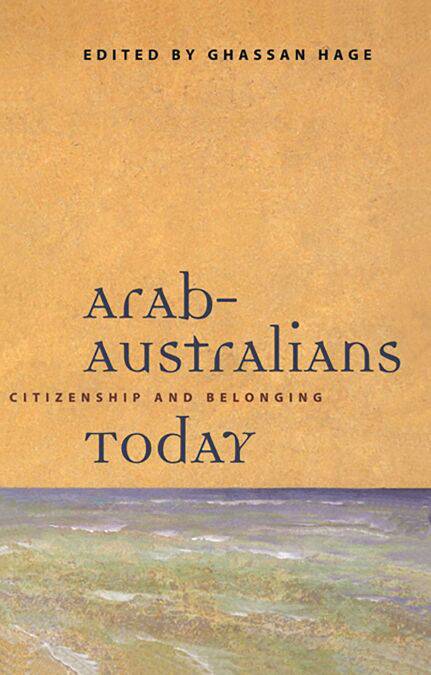
- Afhalen na 1 uur in een winkel met voorraad
- Gratis thuislevering in België vanaf € 30
- Ruim aanbod met 7 miljoen producten
- Afhalen na 1 uur in een winkel met voorraad
- Gratis thuislevering in België vanaf € 30
- Ruim aanbod met 7 miljoen producten
Zoeken
€ 18,57
+ 18 punten
Uitvoering
Omschrijving
Arab people first came to Australia in the late nineteenth century. Today more than half a million Australians claim some form of Arab ancestry.
They are a diverse group, both socially and economically. New South Wales, for example, appointed Australia's first Lebanese Governor, while at the same time it was labelling groups of economically deprived young people as 'Lebanese gangs'. Victoria's Premier, Steve Bracks, comes from a Lebanese background. Melbourne has an important Arab business community, while newly arrived Arab immigrants have one of the highest rates of unemployment in the country.
Arab-Australians Today raises important questions about immigration, settlement, marginalisation and participation in Western societies. It discusses the way early Arab immigrants were received in Australia and talks about contemporary issues of participation in the Australian political process. It examines the lives of diverse groups of people, ranging from entrepreneurs to Arab women activists to unemployed youth. It analyses issues ranging from the ways Arab-Australians grow to call Australia home, to the moral panic created around Arab youth and criminality.
The book offers non-Arab-Australians a way to better understand the Arab presence in Australia. It is also an invitation for Arab-Australians to reflect on the history of their settlement in Australia, as well as on the current experience of more recent immigrants.
They are a diverse group, both socially and economically. New South Wales, for example, appointed Australia's first Lebanese Governor, while at the same time it was labelling groups of economically deprived young people as 'Lebanese gangs'. Victoria's Premier, Steve Bracks, comes from a Lebanese background. Melbourne has an important Arab business community, while newly arrived Arab immigrants have one of the highest rates of unemployment in the country.
Arab-Australians Today raises important questions about immigration, settlement, marginalisation and participation in Western societies. It discusses the way early Arab immigrants were received in Australia and talks about contemporary issues of participation in the Australian political process. It examines the lives of diverse groups of people, ranging from entrepreneurs to Arab women activists to unemployed youth. It analyses issues ranging from the ways Arab-Australians grow to call Australia home, to the moral panic created around Arab youth and criminality.
The book offers non-Arab-Australians a way to better understand the Arab presence in Australia. It is also an invitation for Arab-Australians to reflect on the history of their settlement in Australia, as well as on the current experience of more recent immigrants.
Specificaties
Betrokkenen
- Auteur(s):
- Uitgeverij:
Inhoud
- Aantal bladzijden:
- 304
- Taal:
- Engels
Eigenschappen
- Productcode (EAN):
- 9780522863567
- Verschijningsdatum:
- 23/05/2013
- Uitvoering:
- E-book
- Beveiligd met:
- Adobe DRM
- Formaat:
- ePub

Alleen bij Standaard Boekhandel
+ 18 punten op je klantenkaart van Standaard Boekhandel
Beoordelingen
We publiceren alleen reviews die voldoen aan de voorwaarden voor reviews. Bekijk onze voorwaarden voor reviews.











